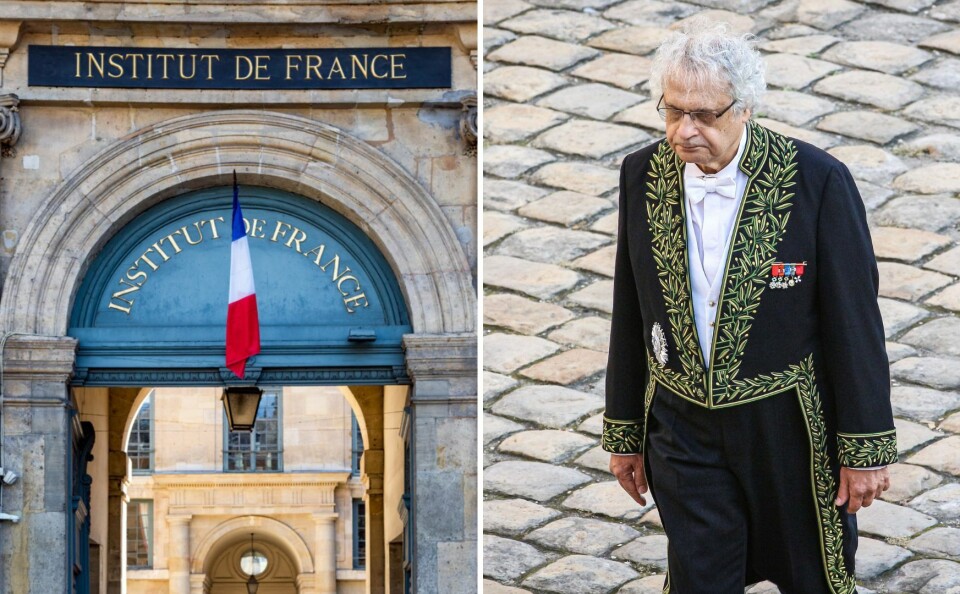-
More French podcasts to test your language skills
Podcasts are one of the best free tools for consistently developing your listening comprehension
-
Rugby vocabulary to know if watching the Six Nations in France
From un tampon to une cathédrale, understand the meaning of key French rugby terms
-
Learning French: what does faire grise mine mean and when should it be used?
A phrase to use when someone is down in the dumps
‘Unlike English there is a right and wrong way to speak French’
It is wonderfully Gallic that the Académie française exists to keep the language pure and elegant, admits columnist Nick Inman

Every academic year, I tell a new group of French students that there are no rules to the English language.
This sentence might generate emails of objection from perfectionists of my native tongue, but its truth is easily demonstrated by a comparison with French.
There are many different varieties of English but there is only one official French.
English evolves according to usage – if you want to ditch an obsolete form, split an infinitive or feminise a word, be my guest.
French, on the other hand, attempts to stay on the same strict course and adapt as little as possible.
The Académie française tries to keep French ‘pure and elegant’
I am talking here about the formal language, by the way, not the bastardised, street-level kind of French that serves for everyday use.
When my friend Arielle says that something I have just said n’est pas français, what she means is that it is not permitted by the Académie française.
This august body, which was founded by Cardinal Richelieu in 1635, meets every Thursday afternoon to determine the rules of French so it remains “pure and elegant”.
One of its early members put its aims more bluntly: “To cleanse the language of the filth it has acquired in the mouths of the people and among the Parisian mob.”
Read more: Franco-Lebanese writer is new guardian of the French language
There is a right way and a wrong way to speak French
Its 40 members – including one Briton, poet and professor Sir Michael Edwards, from Barnes in London – are called Immortals and there is certainly something god-like about their pronouncements.
While they cannot force anyone to speak properly, from their appointed armchairs they can and do condemn the slack misuse of grammar, spelling, punctuation and all the rest.
The point is that there is a right way and a wrong way to speak French.
When you are a beginner, you can forget about this and just do what you can with what you have. However, when you reach intermediate level, you will probably find that people you meet will suggest ways for you to stop murdering their language.
It is no excuse that many French people who have been speaking the language all their lives have fallen into bad habits.
Cultivated people will try to save you from falling into the same abyss.
Read more: Why French institutions must stop their daft use of franglais
The Académie’s website sent me to sleep
No one speaks French as the Académie would like, except (we hope) the Immortals themselves.
The best that those of us who live in the real world can do is be aware of the potential pitfalls and resolve to correct our aberrant ways.
The Académie’s website has two helpful reference sections. One is called Questions de la langue (questions about the language).
It goes into immense detail about thorny subjects such as the employment of anglicisms and when you should say an and année (I fell asleep reading that entry).
It also picks pedantically over new arrivals in French. The Immortals would far rather you called an email a courriel (three syllables) or message électronique (six syllables) than the brisker mail.
It is wonderfully Gallic that the Académie exists
The other interesting section is Dire, ne pas dire – a blog that dissects in detail “what you can and cannot say”.
This elocution lesson from nanny makes fascinating reading if your French is good enough, but I doubt many native speakers pay attention to all the information it contains and adjust their phrasal constructions when ordering a beer.
All said and done, I think it is wonderfully Gallic that the Académie exists and makes such a brave attempt to wash people’s mouths out.
It also helps Arielle to have somewhere to send me for instruction when I guffaw at her hair-splitting corrections.
French is perfect as it is, with all its many imperfections.
Related articles
Which new words have made it into the latest French dictionary?
First chairwoman of top language body Académie française dies at 94
























